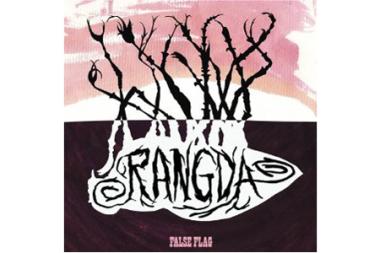Rangda
False Flag
(Drag City)
The avant-garde supergroup made up of Richard Bishop (Sun City Girls), Ben Chasny (Six Organs of Admittance) and Chris Corsano (Bjork, Evan Parker) conjures all the torment and horror inspired by the Balinese demon-queen it’s named after. The disc balances zany improvs—seemingly taken from Naked City’s playbook—and serene order. “Serrated Edges” is a start-stop textural teaser with seemingly constant crescendos, raindrop guitar plucks and schizophrenic percussion. “Fist Family,” eight-plus minutes of malignant tritones over blistering battery assaults, holds its own as the most dissonant track. The band makes the same effort to summon Barong—the Yang to Rangda’s Yin—to the forefront, as heard in the closing epic “Plain of Jars.” Despite False Flag‘s impact, its cumulative effect would be greater if certain tracks were shorter and droning loose ends were tied up. —Paul Bachand
Crystal Castles
Crystal Castles
(Fiction)
Crystal Castles’ second CD shares the same title as the band’s debut, but it’s an improvement in almost every way. The Canadian duo (Ethan Kath and Alice Glass) has concocted a richer, more nuanced version of its aggressive electronic dance music. The standout is “Celestica,” a swooning dream-pop song built from gauzy guitar textures and yearning vocals. “Baptism” intercuts chirpy club beats with chopped-up yelps. “Empathy” features a phased riff and suffocating vocals that bloom into a lush chorus. For those who might fret that the band has mellowed, “Doe Deer” throws a convincingly primal digi-punk tantrum. Crystal Castles combines the cinematic sweep of M83 and the disturbing pitch-shift vocals of The Knife into a subtly haunting sound that’s its alone, distinguished by a willingness to embrace beauty. —Jeff Jackson
James Blackshaw
All is Falling
(Young God)
Londoner James Blackshaw does remarkable things with a 12-string. He negotiates an important line in instrumental guitar—the tension between chord and melody—in intriguing ways. Where lesser aspirants like Kaki King seem to accidentally create melodies in a swamp of picked chords, Blackshaw often moves chords around clearly defined melodies. Other times, his chords—picked, never strummed—move in rhythmically complex layers that build to fever pitches where slow-moving melodies emerge (sometimes on violin, cello or piano). Such moments become sonic juggernauts, surprising, even overwhelming manifestations of emotion-charged ambience. Blackshaw is a careful constructor of sound rather than a flashy virtuoso. Listen closely, and you can hear his process play out as layers accrue. His dissonance and harmony call up hypnotic pleasures in high style. —James Heflin



